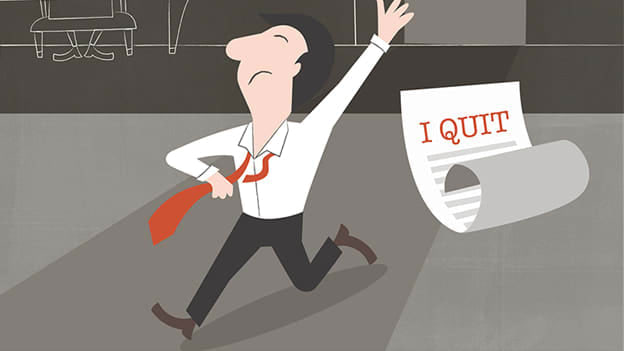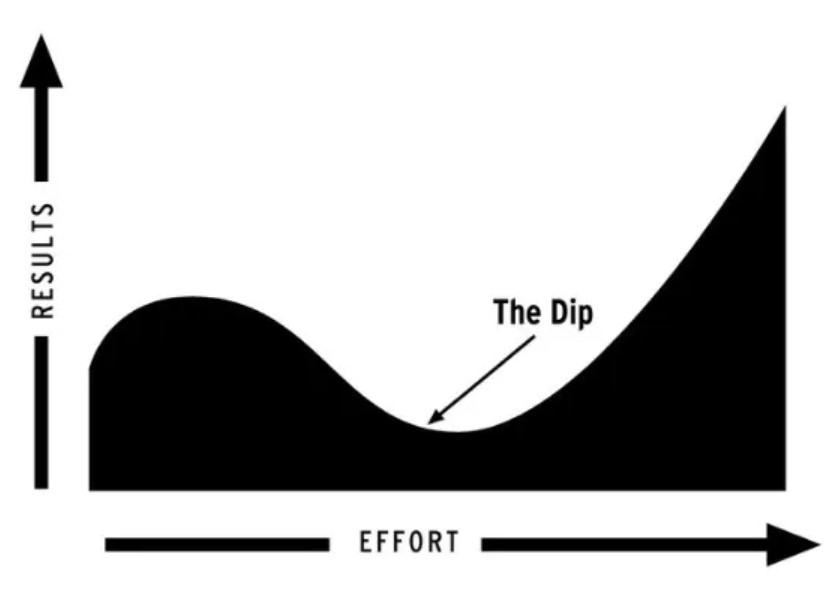Stay On The Bus
Know When To Keep On Going
The Helsinki Bus Station Theory

What Does It Mean To Stay On The Bus?
To stay on the bus means that when you are trying to do something new and different, and have hit a dip and feel discouraged, you should just keep on going and avoid the temptation to bail out and try something else.
Have you ever started a new project, initiative or role with a big vision and a determination to make a difference?
Initially you were full of enthusiasm and highly motivated to break new ground.
Yet after a while you get discouraged as you realise that what you thought was your own special individual approach is very similar to the efforts of many other people.
Then it gets really tough as you find that what you thought was your own unique journey is identical to the work of thousands
of others.
You feel miserable, then despondent and you slide into despair as you tell yourself:
"This path is not for me, I can't share what I have to offer with so much competition.
So many people have been working in this space for so much longer than me, I will never be able to stand out from the crowd...
I think I'll start again on a new path..."
Many of us are creators in some capacity.
- In business, the manager who tries so hard to promote a significant change initiative.
- A medical professional, or a professional carer, who promotes an opportunity to improve patient care.
- A church leader pushing for greater outreach to the disadvantaged.
- A charity volunteer exploring ways of broadening the scope of the charity's service.
- And, of course, the more obvious creative efforts of the writer, the designer, the blogger, the artist, and the musician.
The common factor here that each person is pouring themselves into their work and seeking to share it with the world.
We are all creators and we all experience set backs, discouragement and failure.
Too often, we are tempted to respond to these failures by stepping off the bus, calling a cab and getting on another bus route, thinking to ourselves that:
"Maybe the ride will be smoother over there...?"
The Helsinki Bus Station Theory

The Helsinki Bus Station Theory was first proposed as a metaphor for young, ambitious photographers in a 2004 graduation speech to the New England School of Photography by Finnish-American photographer Arno Minkkinen.

The full title of his address was "The Helsinki Bus Station Theory: Finding Your Own Vision in Photography":
"There is a bus station in Helsinki I want to invite you to see, a bus station just across from Eliel Saarinen’s famous train station.
What makes the bus station famous, at least among my students at UMass Lowell, the University of Art & Design Helsinki, the École d’Art Appliqués in Lausanne, Switzerland or the many workshops I give in Tuscany, Maine, and Santa Fe, is the metaphor it offers students and professionals alike for creative continuity in a lifelong journey in photography, the metaphor is provides to young artists seeking to discover their own unique vision one day."
The same route and identical stops...
The bus station has two dozen platforms and hundreds of buses leave from the station each day.
Each bus sets off on the same route for the first mile, stopping several times, all of the buses make identical stops.
Minkkinen suggests that you imagine each stop as a period in your life. Despite being on a different bus from everyone else, you stop at all the same stops.
What most people do is they get two or three stops down the road, realise they’re on the same route as everyone else, get off and grab a cab back to the bus station – telling themselves that "life is short".
"So you've been working for three years, making...studies of nudes. Call it bus 21. You take those three years of work...to the Museum of Fine Arts Boston and the curator asks if you are familiar with the nudes of Irving Penn. His bus (71) was on the same line. Or you take them to a gallery in Paris, and are reminded to check out Bill Brandt (bus 58)...and so on."
They get on another bus and two or three stops down the road again, they look around to see they’re on the same path. They get off and hop another cab back to the bus station.
"Shocked, you realise that what you have been doing for three years (is what) others have already done. So you hop off the bus, grab a cab - because life is short - and head straight back to the bus station looking for another platform."
But what happens is that after a mile or so, the bus routes fork. The 21 heads South and the 71 heads North. Eventually, the tendrils of bus routes stretch far out of downtown Helsinki, each ending at it’s own unique destination.
"The buses that move out of Helsinki stay on the same line but only for a while, maybe a kilometer or two. Then they begin to separate, each number heading off to its own unique destination. Bus 33 suddenly goes north, bus 19 southwest. For a time maybe 21 and 71 dovetail each other for a spell, but soon they split off as well."
It’s the separation that makes all the difference
"It’s the separation that makes all the difference, and once you start to see that difference in your work from the work you so admire (that’s why you chose that platform after all), it’s time to look for your breakthrough.
Suddenly your work starts to get noticed. Now you are working more on your own, making more of the difference between your work and what influenced it.
Your vision takes off. And as the years mount up and your work begins to pile up, it won’t be long before the critics become very intrigued, not just by what separates your work from a Sally Mann or a Ralph Gibson, but by what you did when you first got started! You regain the whole bus route in fact."
You can read Minkkinen's full address here.
Key Reasons Why You Should Stay On The Bus
3 Tips To Help You Stay On The Bus

[1] Prepare For The Dip
In the pursuit of any creative endeavour progress is not linear. In the early stages you progress rapidly as you follow in the footstep of those before you and learn the basics. Your feel inspired and motivated by your initial progress, and you fall into the trap of thinking like it will continue like this.
But of course it doesn't. Sooner or later, you reach a point where your progress slows. You don't feel like you are doing anything very different to others who are on same path. It all feels like a slog, and you start to doubt yourself:
Maybe this isn’t worth it... maybe I should quit and try something else.
Seth Godwin calls this point in your journey “The Dip”. He describes it as “the long slog between starting and mastery,” the point where most people give up.
If you take a larger view, though, you’ll realize that:
- You can't escape the Dip
- The Dip is the key to getting to mastery.
- Stay on the bus
[2] Know When To Quit

In determining whether or not to quit it is important to be very clear about when to quit.
Seth Godwin suggests that quitting when you hit the Dip is a bad idea:
"If the journey you started was worth doing, then quitting when you hit the Dip just wastes the time you’ve already invested.
Quit in the Dip often enough and you’ll find yourself becoming a serial quitter, starting many things but accomplishing little."
That said, there are circumstances when quitting has to be considered.
A decision to quit based on how you feel in the present moment is most probably the wrong decision.
Here are some general pointers to knowing when to quit.
[3] Adopt the Craftsman Mindset

In "So Good They Can’t Ignore You" Georgetown Professor Cal Newport cites the comedian Steve Martin, who once said his advice for aspiring entertainers was to “...be so good they can’t ignore you...”
Decrying the popular "follow your passion" approach Newport recommends adopting the craftsman mindset where you are continuously learning and honing your craft through "deliberate practice".
Newport has coined a phrase "deep work" [and of course written a book about it]. He describes deep work as:
“Professional activities performed in a state of distraction-free concentration that push your cognitive capabilities to their limit. These efforts create new value, improve your skill, and are hard to replicate.”
James Clear suggests that:
"The key feature of The Helsinki Bus Station Theory is that it urges you to not simply do more work, but to do more re-work."
Farnam Street Blog - The Ultimate Deliberate Practice Guide
Shane Parrish is very clear:
Further Reading :
The Long Game - Delay Gains Now To Get More Later
The Challenges Of The Road Less Traveled - When Playing The Long Game
Next Article:
How to Get What You Value by Changing What You Measure
Return from: "Stay On The Bus" to: Walking The Talk
LATEST ARTICLES
Does Prayer Work? The Psychology of Prayer, Meditation and Outcomes
 Reality Is A Complex System Of Countless Interactions - Including Yours. So does prayer work? The problem is that the question itself is usually framed in a way that guarantees confusion. We tend to a…
Reality Is A Complex System Of Countless Interactions - Including Yours. So does prayer work? The problem is that the question itself is usually framed in a way that guarantees confusion. We tend to a…Living in Survival Mode Without Surrendering Mental Authority
Living in Survival Mode Without Surrendering Mental Authority
 Clear Thinking When You’re Just Trying to Stay Afloat. Many people today are overwhelmed because they are living in survival mode - not temporarily, but as a persistent condition of life. For many, th…
Clear Thinking When You’re Just Trying to Stay Afloat. Many people today are overwhelmed because they are living in survival mode - not temporarily, but as a persistent condition of life. For many, th…Manifestation Without Magic: A Practical Model
 Manifestation without magic is not a softer or more intellectual version of popular manifestation culture. It is a different model altogether. Popular manifestation teachings tend to frame reality as…
Manifestation without magic is not a softer or more intellectual version of popular manifestation culture. It is a different model altogether. Popular manifestation teachings tend to frame reality as…Staying Committed When You Can't See Progress - The Psychology of Grit
 Uncertainty Is Not The Absence Of Progress, Only The Absence Of Reassurance. One of the most destabilising experiences in modern life is not failure, but uncertainty and staying committed when you can…
Uncertainty Is Not The Absence Of Progress, Only The Absence Of Reassurance. One of the most destabilising experiences in modern life is not failure, but uncertainty and staying committed when you can…The Battle For Your Mind - How To Win Inner Freedom In A Digital Age Of Distraction
 From External Events to Inner Events. We often think of “events” as things that happen out there: the traffic jam, the rude comment, the delayed email reply. But what truly shapes our experience is wh…
From External Events to Inner Events. We often think of “events” as things that happen out there: the traffic jam, the rude comment, the delayed email reply. But what truly shapes our experience is wh…How to See Your Thoughts Without Becoming the Story
 A Practical Guide to Thought-Awareness. You can spend your life inside the stories of your mind without ever learning how to see your thoughts clearly and objectively. Most of the stuff we tell oursel…
A Practical Guide to Thought-Awareness. You can spend your life inside the stories of your mind without ever learning how to see your thoughts clearly and objectively. Most of the stuff we tell oursel…The Collison Decision Matrix - A Simple Framework for Better Choices
 The Collison Decision Matrix Is A Practical Everyday Thinking Tool. Most of us spend a surprising amount of time worrying about decisions. From small ones such as what to wear, what to eat, what to te…
The Collison Decision Matrix Is A Practical Everyday Thinking Tool. Most of us spend a surprising amount of time worrying about decisions. From small ones such as what to wear, what to eat, what to te…The Power Of Asking The Right Question
 The Power Of Asking The Right Question Lies In The Quest For Insight. To experience the power of asking the right question you must develop the practice of asking questions. The best way to improve th…
The Power Of Asking The Right Question Lies In The Quest For Insight. To experience the power of asking the right question you must develop the practice of asking questions. The best way to improve th…Site Pathways
 Here is a site pathway to help new readers of Zen-Tools navigate the material on this site. Each pathway is based around one of the many key themes covered on this site and contain a 150 word introduc…
Here is a site pathway to help new readers of Zen-Tools navigate the material on this site. Each pathway is based around one of the many key themes covered on this site and contain a 150 word introduc…How To Live With Contradiction - Beyond Thought Let Stillness Speak
 A major impact on so many peoples' lives is the situational contradiction of unfilled realistic expectations. So where does all this leave us? Well here we are, with mental equipment that is more lim…
A major impact on so many peoples' lives is the situational contradiction of unfilled realistic expectations. So where does all this leave us? Well here we are, with mental equipment that is more lim…How To Trust The Process Of Mindfulness - Right Now
 In mindfulness, the process isn’t some distant goal — it's what is happening right now. When we talk about how to trust the process of mindfulness the credibility of the process is heavily dependent…
In mindfulness, the process isn’t some distant goal — it's what is happening right now. When we talk about how to trust the process of mindfulness the credibility of the process is heavily dependent…
